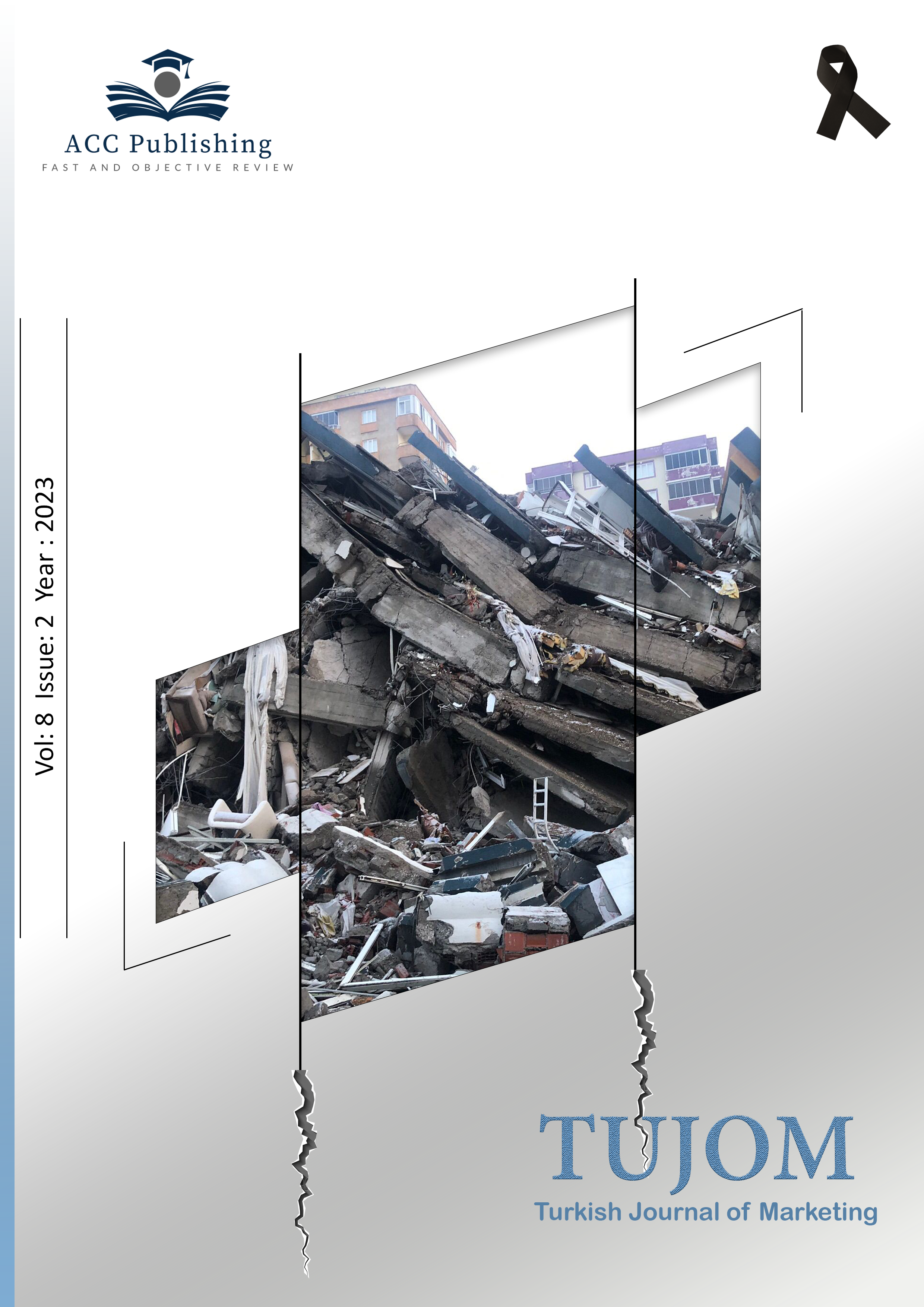Published 06/26/2023
Keywords
- Marketing, Qualitative Research, Researcher Responsibility, Researcher Diaries
Copyright (c) 2023 Selda Fındıklı- Emine Pınar Saygın

This work is licensed under a Creative Commons Attribution-NonCommercial-NoDerivatives 4.0 International License.
How to Cite
Abstract
With the proliferation of qualitative research, the responsibilities of the qualitative researcher are also emphasized. The qualitative researcher is expected to have different roles and responsibilities than the quantitative researcher. The effectiveness and usefulness of qualitative research largely depend on the researcher's skill. Because, unlike quantitative, in qualitative research, the researcher does not only collect data but also analyzes and reports with various methods, participates in the construction of the research, empathizes, sometimes experiences events and phenomena with the participants and interprets the results from the perspective he has gained in this way. The importance of researcher diaries emerges at this point. The researcher can use the researcher's diaries as a data source and as a channel for self-evaluation. The diaries contribute to the process and the product by revealing an internal presentation of how the research process was experienced. In order to reflect the context of his/her work, the researcher uses the quotes from his/her diary while performing the projection task in the transfer of experiences; It is an important help that the diary is a product that can be subjected to retrospective analysis. Beyond reflecting descriptive details, researcher diaries are also a very important data source in providing the concept of "credibility", which is important in qualitative research. This study discusses the importance and necessity of researcher diaries in qualitative studies.
References
- Alaszewski, A. (2006). Using diaries for social researches (1bs ed.). Sage.
- Borg, S. (2001). The research journal: a tool for promoting and understanding researcher development. Language Teaching Research, 5(2), 156-177.
- Charmaz, K. (2006). Constructing grounded theory: A practical guide through qualitative analysis. London: Sage.
- Charmaz, K. (2021). The genesis, grounds and growth of constructivist grounded theory. In Developing grounded theory: The second generation revisited (2nd ed., pp. 153–187). Taylor and Francis Group.
- Creswell, J. W. (2018). Nitel araştırma yöntemleri: Beş yaklaşıma göre nitel araştırma ve nitel araştırma deseni. (M. Bütün & S. B. Demir, Trans.) (4. baskı). Ankara: Siyasal yayınevi.
- Ger, G. (2009). Tüketici Araştırmalarında Nitel Yöntemler Kullanmanın İncelikleri ve Zorlukları. Tüketici ve Tüketim Araştırmaları Dergisi, 1(1), 1–19.
- Fındıklı, S. (2019). Çeyize Yönelik Tüketim Olgusunu Kuşaklararası Anlamak: Fenomenolojik Bir Araştırma, (Doktora Tezi), Eskişehir Anadolu Üniversitesi Sosyal Bilimler Enstitüsü.
- Johnson, A. P. (2005). A short guide to action research (2nd edition). Boston: Pearson Education.
- Karasar, N. (2005). Bilimsel araştırma yöntemi. Nobel Yayın Dağıtım.
- Kirk, J., Miller, M.L., (1986). Reliability and Validity in Qualitative Research, USA: Sage Publications.
- Lincoln, Y. S. ve Guba, E. G. (1985). Naturalistic inquiry. Beverley Hills, CA: Sage.
- Mills, G. (2003). Action research: A guide for the teacher researcher. Upper Saddle River, NJ: Merrill/Prentice Hall.
- Woll, H. (2013). Process Diary as Methodological Approach in Longitudinal Phenomenological Research. Indo-Pacific Journal of Phenomenology, 13(2), 1–11.
- Yıldırım, A., ve Şimşek, H. (2018). Sosyal Bilimlerde Nitel Araştırma Yöntemleri (11. ed.). Ankara: Seçkin.



